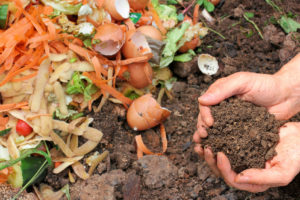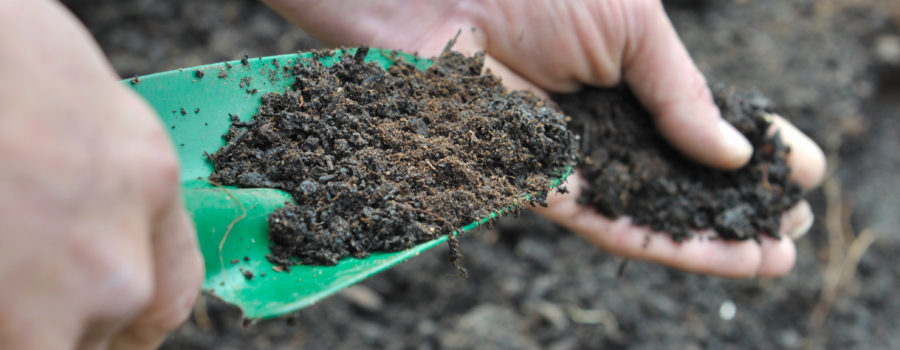My family has always composted, so it just felt really strange to be throwing away food waste when I began working here. Especially because we use materials that are exceptionally great for compost, and we use them in large amounts compared to a normal household. We have melon rind, egg shells, and coffee grounds EVERY DAY. And even better than that, it’s predictable quantities–which makes it easier to plan the flow of dry material for the process.
Well we’re still on our first barrel, so I’ll let you know where it ends up going! But we have more than enough growing ground on the property to use it effectively, and once we get into a real rhythm with it we’re planning on offering it to neighbors as well. If you’ve ever taken a quick jaunt around the neighborhood, you know that there are more than enough gardens to keep one little composting operation in constant rotation!
What are the benefits of composting in general?
Many! I think when most people hear the word “compost”, they immediately equate it with gardening. And there’s good reason for that–compost makes lovely fertilizer, especially when you’re concerned with growing nutrient-rich food, and it helps soil retain water well.
However, I wish people wouldn’t equate it so narrowly with gardening because everyone should compost what they can in order to keep food waste out of landfills. Anyone can do cursory reading on this so I feel weird explaining it, but the gist is that the way food waste in massive quantity breaks down is significantly different from the way it typically does in a process that’s smaller. In landfills you have piles of food that are deprived, except for on the most superficial layers, of oxygen. And organic matter that breaks down in the absence of oxygen releases proportionally massive amounts of methane gas. Which is a bad thing even though it’s a “natural process”, because we’re currently producing quantities too large for the earth to handle naturally.
And it’s just silly to have something so harmful happening with food when it’s relatively easy to 1) eliminate the happening altogether and 2) invert the situation completely into one that can be nourishing.
What are the specific benefits of composting for an inn or Bed and Breakfast?
Well, it’s actually a more difficult operation, in a sense, than it is at the average family home. It’s important for our outdoor grounds to look particularly styled–and what that means is removal of yard trimmings/grass clippings, which is what a lot of people use for dry material. We usually bag grass, but Tom (our INCREDIBLE handyman) and I are trying to figure out a good way to make dry material without it being really unsightly.
But we’re so lucky because if we make good choices with our business, the world is proportionately that much better off than it is on account of an average family doing the same. The benefit? It’s the same as it is for anyone: it’s that we, as a human race, may survive longer than we otherwise would.
As a guest, you don’t have control over the environmental impact of most of your stay once you’ve checked into a place of hospitality, but you do have the initial choice. I know it matters to me–if I’m traveling and have the choice of a place that does what it can to host high volumes of people responsibly, I’m all about it. I hope our guests feel the same, even though it’s not a regular part of our marketing–this care doesn’t make the inn “crunchy”, it’s probably not even noticeable unless you’re looking for it, but we’re trying to find as many things to tweak–getting rid of aerosols, eliminating individually sized toiletries (in non-recyclable plastics), buying ingredients in bulk. Buying the ugly produce that grocery stores usually end up throwing out. That sort of thing. We’re really concerned with forming better and better habits of sustainable operation.
I want to begin a compost–how do I get started?
Figure out where you’re going to source your dry material so that you don’t just have a bucket of rotten food! That’s usually what happens when people start it up outside of a completely rural setting–manicured lawns don’t leave a lot of social for curing clippings. Yeah, it’s not difficult but just figure that out first so you’re not frustrated. And the biggest thing is to set up a system that you’ll actually continue to maintain, even if it’s not 100% of what you think you could be doing.




















